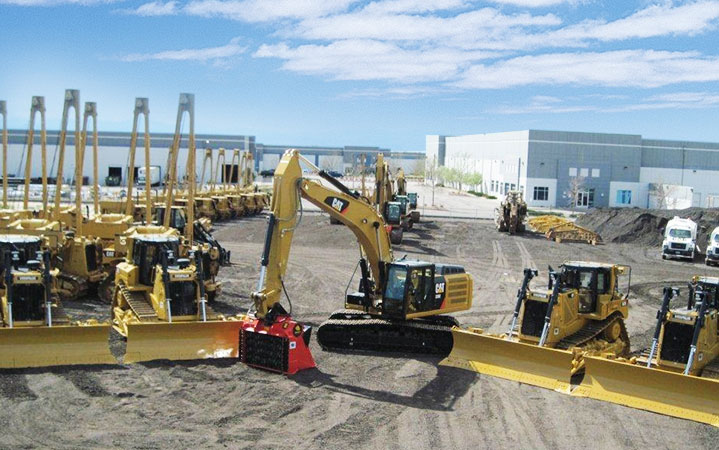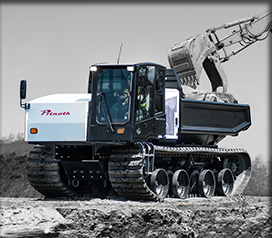Superior Oilfield Rentals Texas: common questions answered before renting
Wiki Article
A Comprehensive Overview to the Various Kinds Of Oil Field Equipment and Pipeline Equipment Available
The oil and gas market depends greatly on customized tools for reliable removal and transport. Various sorts of equipment, from piercing rigs to tank, play crucial duties in this intricate procedure. Each item of tools offers unique features that contribute to general operational success. Comprehending these elements is crucial for any individual entailed in the market. As the market progresses, so also do the innovations that support it. What advancements are on the horizon?
Drilling Rigs: The Foundation of Oil Exploration
Drilling rigs work as the essential machinery in the domain of oil expedition, enabling business to accessibility hydrocarbon reserves buried deep under the Earth's surface. These rigs are available in numerous types, including land rigs, offshore rigs, and mobile systems, each made to operate in particular settings. Equipped with sophisticated modern technology, piercing rigs can pass through geological developments with precision, making certain efficient resource extraction. The architectural honesty and operational abilities of these rigs are critical, as they should stand up to severe problems and substantial pressures. Furthermore, the selection of a drilling rig affects the general job expense and timeline, making it an important consideration for oil companies seeking to optimize their exploration efforts and optimize performance in their procedures.Pumps: Necessary for Liquid Motion
In the oil extraction procedure, the duty of pumps is substantial, promoting the motion of fluids throughout different stages of production. Pumps are vital for carrying crude oil, water, and other fluids from underground reservoirs to the surface area and after that via pipes to refineries. They are available in various types, consisting of centrifugal, positive displacement, and completely submersible pumps, each offering certain functions based on the liquid attributes and operational requirements. Centrifugal pumps are generally made use of for their effectiveness in high-flow applications, while positive variation pumps excel in dealing with viscous liquids. The choice of pump influences general performance, operational safety, and upkeep expenses. Correct option and maintenance of pumps are essential for optimizing manufacturing and reducing downtime in oil area operations.Valves: Managing Flow and Pressure

Valves play an important function in taking care of the circulation and pressure of fluids within oil fields and pipelines. Numerous kinds of valves serve unique applications, each made to fulfill particular functions essential for effective procedure - Superior Rentals fusion machines. Understanding the characteristics and uses of these valves is essential for optimizing system performance and safety
Kinds of Valves
Essential elements in oil field operations, shutoffs play an essential role in regulating the circulation and stress of fluids within pipelines and equipment. Different kinds of shutoffs are utilized to meet the diverse needs of oil and gas manufacturing. Usual kinds consist of entrance shutoffs, which supply a straight-line circulation and very little pressure drop; world shutoffs, understood for their throttling capacities; and sphere shutoffs, acknowledged for their quick on/off control. In addition, check shutoffs avoid backflow, while butterfly shutoffs provide a lightweight remedy for controling flow. Each valve kind is developed with specific products and configurations to withstand the rough problems usually discovered in oil fields, guaranteeing reliability and performance in procedures. Understanding these kinds is important for efficient system management.Valve Applications and Features
While various sorts of valves offer distinct objectives, their main applications focus on managing flow and stress within oil and gas systems. useful content Valves such as entrance, world, and sphere valves regulate liquid activity, ensuring peak efficiency and safety and security. Gateway valves are generally used for on/off control, providing very little flow resistance. Globe shutoffs, on the various other hand, offer precise flow law, making them suitable for strangling applications. Round valves are favored for their fast procedure and tight sealing capacities. Furthermore, pressure alleviation shutoffs are vital for protecting against system overpressure, protecting tools integrity. Generally, the appropriate selection and application of valves boost functional efficiency, making sure the reliable transport of oil and gas via pipes and processing centers.Compressors: Enhancing Gas Transport
Compressors play an important duty in the efficient transport of natural gas, guaranteeing that it moves smoothly with pipelines over cross countries. These tools increase the stress of natural gas, allowing it to overcome friction and altitude adjustments within the pipeline system. In addition, compressors facilitate the harmonizing of supply and need, accommodating fluctuations in consumption and manufacturing prices. Numerous kinds of compressors are utilized in the market, including centrifugal, reciprocating, and rotary screw compressors, each offering distinct advantages based on the operational needs. Normal upkeep of these compressors is necessary to maximize efficiency and decrease downtime, inevitably adding to a trusted gas transport network. Their crucial function underscores the importance of compressors in the overall oil and gas infrastructure.Storage Tanks: Safe and Reliable Liquid Administration
Efficient transport of gas depends on different supporting systems, one of which is the appropriate management of storage space tanks. These containers play a crucial function in securely including liquids, making sure that operational performance is preserved while minimizing ecological risks. Created from resilient products, they are designed to hold up against high pressures and harsh aspects. Effectively sized and tactically situated, tank promote the smooth circulation of gas and other liquids, stopping bottlenecks in supply chains. Routine upkeep and monitoring are imperative to find leakages or structural problems, promoting safety and security and compliance with regulative criteria. Ultimately, the efficient monitoring of tank is important for the overall stability and reliability of the oil and gas sector's liquid handling systems.
Pipeline Systems: Facilities for Transport
Pipeline systems act as the foundation of the oil and gas industry, assisting in the reliable transport of hydrocarbons over vast ranges. These systems contain various parts, including pipes, shutoffs, pumps, and compressors, all meticulously developed to assure smooth flow. The materials made use of in pipeline building, commonly steel or high-density polyethylene, are selected for see post sturdiness and resistance to deterioration. Pipeline networks can span across land and water, linking manufacturing websites to refineries and warehouse. Furthermore, advanced innovation allows real-time surveillance of flow rates and pressure degrees, boosting functional effectiveness. The calculated placement of these pipelines reduces ecological effect while making the most of resource accessibility, thereby playing a vital function in conference energy needs around the world.Safety And Security Equipment: Ensuring Employee and Environmental Management
The procedure of pipeline systems, while vital for energy transport, additionally provides significant safety and security difficulties for employees and the setting. Security equipment plays a substantial function in reducing these threats. Individual protective tools (PPE) such as safety helmets, gloves, and non-slip shoes safeguards workers from physical hazards. In addition, gas discovery systems keep an eye on for leaks, ensuring that harmful materials do not present a danger to personnel or the bordering ecosystem. Emergency shutdown systems are vital for quickly stopping procedures during a situation, avoiding possible catastrophes. Spill containment materials, consisting of absorbents and barriers, are basic for minimizing ecological impact. In general, buying all-inclusive safety and security equipment is important for maintaining functional honesty and safeguarding both employees and the setting in the oil and gas sector.
Regularly Asked Concerns
Exactly how Do I Choose the Right Oil Field Equipment for My Project?
Picking the appropriate oil area equipment involves evaluating task requirements, budget plan constraints, and operational requirements. Consider variables such as devices reliability, compatibility with existing systems, and the supplier's reputation to assure peak performance and safety.What Are the Upkeep Demands for Oil Field Equipment?
Maintenance demands for oil field tools include normal assessments, lubrication, and timely fixings. Operators must also stick to maker guidelines, screen performance metrics, and guarantee compliance with security laws to enhance long life and performance.
How Can I Make Certain Compliance With Environmental Laws?
To assure compliance click here for more with environmental guidelines, companies need to perform regular audits, execute ideal techniques, invest in training, keep appropriate paperwork, and stay updated on legislation (Superior Oilfield Rentals). Collaboration with ecological companies can likewise enhance adherence to regulationsWhat Is the Ordinary Lifespan of Pipeline Equipment?
The ordinary life expectancy of pipeline equipment normally ranges from 20 to 50 years, depending on variables such as worldly quality, ecological problems, and maintenance techniques. Routine evaluations can considerably affect durability and operational effectiveness.How Do I Securely Deliver Oil Field Equipment to Remote Locations?
Moving oil area tools to remote places needs careful planning, consisting of course evaluation, protecting licenses, using appropriate vehicles, and making certain safety and security protocols are complied with. Proper training and interaction among crews are crucial for successful transport.Report this wiki page